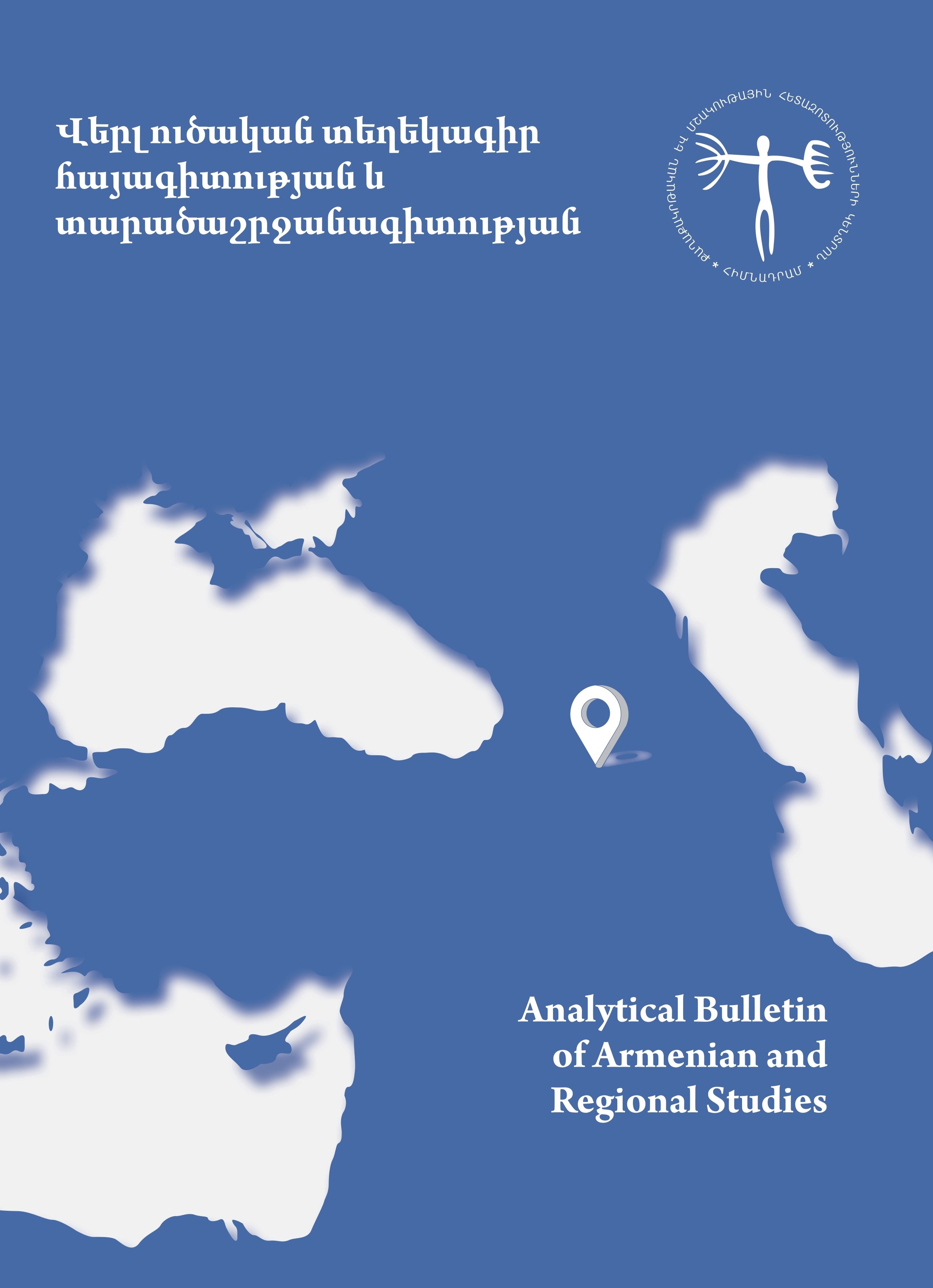A COMPARATIVE ANALYSIS OF ELECTORAL PROCESSES IN ARMENIA AND GEORGIA
Keywords:
electoral systems, Parliament, majoritarian voting syste, Armenia, GeorgiaAbstract
This article compares the majoritarian electoral systems in Armenia and Georgia. Since gaining independence, both countries experimented with different electoral systems, which has led to the ongoing debate over which is the best model. The majoritarian electoral model is oftentimes criticized in both countries. This paper discusses the major characteristics of this model and concludes that despite the existence of some obvious problems, political elites are often reluctant to change the system because it guarantees significant political gains in elections; changes can only take place in the context of a broad reform initiative, such as the constitutional reform in Armenia, or when elections are postponed for some unclear reasons, as seen in Georgia
References
Apella Institute: New Constitution Could Create Further Societal Polarization. (Last visited 19.02.2017). Retrieved from http://www.civilnet.am/news/2015/12/01/apella-institute-newconstitution-armenia-further-societal-polarization/282505
Assessment of Performance of the Georgian Parliament 2015 (Last visited 19.02.2017).Transparency International Georgia, Tbilisi 2016. Retrieved from (http://www.transparency.ge /sites/default/files/post_attachments/parliamentary-work-report2015-eng.pdf)
Central Electoral Commission. RA official web site (Last visited 19.02.2017). http://www.elections.am/
CEC Election Administration of Georgia. (Last visited 19.02.2017). http://cesko.ge/eng
Constitution of the Republic of Armenia. (Last visited 19.02.2017). Retrieved from http://www.ombuds.am/ resources/ombudsman/uploads/files/legislation/0f30a8196c4c214 a6e22b03e753d8cde.pdf
Draft Amendments To The Constitution Of Armenia. (Last visited 19.02.2017). EUROPEAN COMMISSION FOR DEMOCRACY THROUGH LAW (VENICE COMMISSION) Retrieved from http://www.venice.coe.int/webforms/documents/ default.aspx?pdffile=CDL-REF(2015)034-e
Guadalupe Rojo, Subhash Jha, Erik Wibbels (last visited 19.02.2017). Political Networks, Clientelism and Public Goods. Retrieved from https://sites.duke.edu/wibbels/files/2014/10/ Rojo_Jha_Wibbels.pdf
James A. Robinson (Last visited 19.02.2017). The Political Economy of Clientelism. Retrieved from http://scholar.harvard.edu/files/jrobinson/files/clientelism.pdf
James H. Fowler, Michael T. Heaney, David W. Nickerson, John F. Padgett and Betsy Sinclair (last visited 19.02.2017) Causality in Political Networks. Retrieved from http://fowler.ucsd.edu/causality_in_political_networks.pdf
Local EU statement on the constitutional referendum in Armenia on 6 December (Last visited 19.02.2017). Retrieved from http://www.lragir.am/index/eng/0/politics/view/35046
National Assembly of the Republic of Armenia. Official web site (Last visited 19.02.2017). http://www.parliament.am/parliament. php?id=parliament&lang=eng
My Parliament (Last visited 19.02.2017). Retrieved from http://myparliament.ge/en
Parliament of Georgia. Official web site (Last visited 19.02.2017). Retrieved from http://www.parliament.ge/en /search/index/?s=elections
Parliament Monitoring (Last visited 19.02.2017). Retrieved from http://www.parliamentmonitoring.am/
Susan C. Stokes (Last visited 19.02.2017). Is Vote Buying Undemocratic? Retrieved from http://campuspress.yale.edu /susanstokes/files/2013/10/Is_Vote_Buying_Undemocratic.pdf





